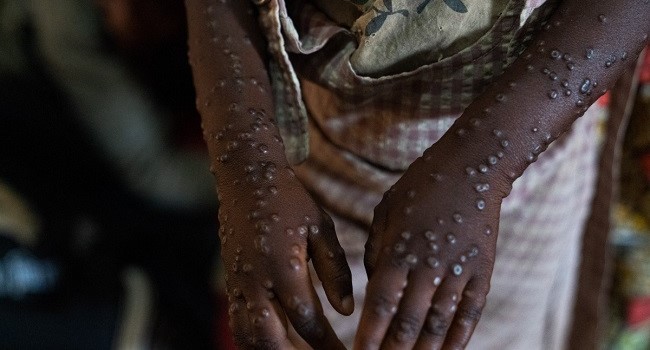Mpox vaccines have been administered in Africa for the first time, with several hundred high-risk individuals receiving the shots in Rwanda, the African Union’s disease control center announced on Thursday.
The first 300 doses were administered on Tuesday near the border with the Democratic Republic of Congo (DRC), according to a spokesperson for the AU’s Centres for Disease Control and Prevention (Africa CDC).
The DRC has been the hardest-hit country, recording nearly 22,000 cases and over 700 deaths linked to the virus between January and August this year.
Africa CDC Director General Jean Kaseya stated during a call with reporters that vaccinations in the DRC are scheduled to begin in “the first week of October.”
Mpox, formerly known as monkeypox, is a viral disease transmitted to humans by infected animals and can spread from person to person through close physical contact. While deadly in some cases, it typically causes fever, muscle aches, and large, boil-like lesions on the skin.
Last week, the World Health Organization (WHO) prequalified the mpox vaccine MVA-BN for the first time, allowing the United Nations and other international agencies to procure it.
According to Africa CDC, there have been 29,152 cases and 738 deaths reported across 15 countries on the continent.
“Mpox is not under control,” Kaseya warned, adding that testing remains a challenge, with only half of suspected cases being tested. The agency aims to increase testing coverage to over 80 percent.
WHO Director-General Tedros Adhanom Ghebreyesus highlighted ongoing outbreaks in Burundi and the DRC, where cases continue to rise.
The WHO prequalification allows the MVA-BN vaccine to be administered to individuals over the age of 18 in two doses, given four weeks apart. Given that most mpox cases and deaths in the DRC are among children, the WHO has recommended “off-label” use of the vaccine in infants, children, adolescents, as well as pregnant and immunocompromised individuals in outbreak settings, where the benefits of vaccination outweigh potential risks.
In settings where vaccine supply is limited, the WHO suggests a single-dose strategy, though more data is needed to fully understand its safety and effectiveness. Current data indicates that a single dose of the MVA-BN vaccine, when administered before exposure, is about 76 percent effective in preventing mpox, while two doses are estimated to be 82 percent effective.






















Discussion about this post